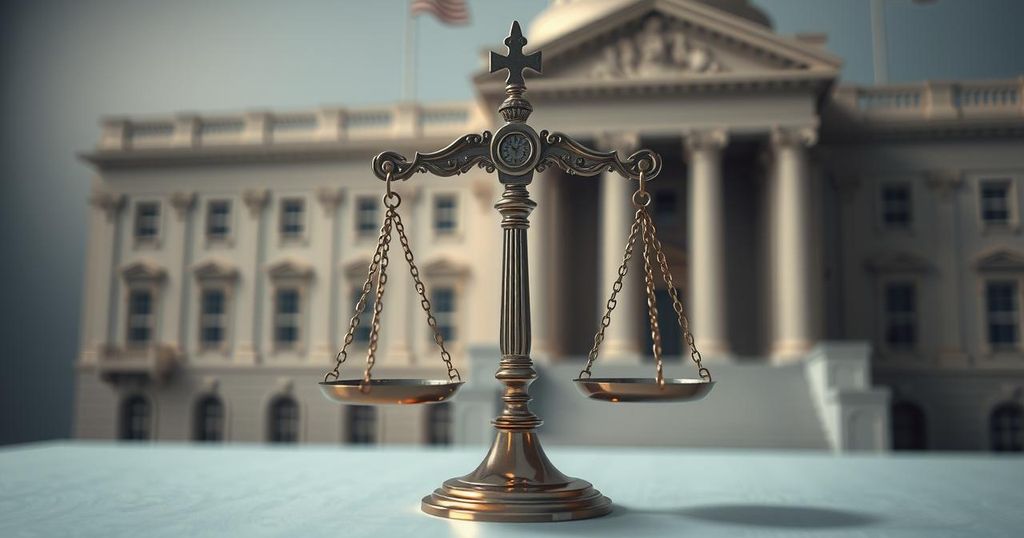Narrow Margin in Ecuador’s Presidential Election Leads to Runoff
In the Ecuador presidential elections, President Daniel Noboa and his leftist rival Luisa Gonzalez will go to a runoff after a close first round. Noboa leads slightly, but Gonzalez claims her strong performance reflects public desire for change. This election is a referendum on Noboa’s hardline stance against crime and a test of Gonzalez’s vision for the country.
The first round of voting in Ecuador’s presidential election resulted in a close race between incumbent President Daniel Noboa and leftist candidate Luisa Gonzalez. With the official count showing Noboa at 44.3 percent and Gonzalez at 43.9 percent, both candidates will face off in a runoff election scheduled for April. Noboa, who campaigned on a platform focused on combating cartel violence, declared his outcome a victory, asserting he overcame the political entities of traditional Ecuador.
Gonzalez, a lawyer and single mother, claimed her performance indicated a demand for change among the electorate. She described the election as a significant battle, reminiscent of the biblical David versus Goliath. Her candidacy aims to establish her as Ecuador’s first elected female president, and she received notable support from Mexican President Claudia Sheinbaum.
This election serves as a referendum on Noboa’s administration, which has faced criticism for its aggressive measures against escalating crime rates, including homicide and drug-related violence. The election backdrop has seen debilitating ramifications for Ecuador’s safety, as the nation has seen a dramatic rise in cartel-related violence.
Implementing emergency powers, Noboa’s government has utilized the military in public safety roles to tackle organized crime. However, human rights organizations have raised alarms regarding abuses, including significant incidents of violence involving military forces. Campaigns leading to the election were marked by extensive security measures to prevent violence, following the assassination of a previous candidate.
Noboa also expressed fears that a Gonzalez presidency would rejuvenate policies from former President Rafael Correa, now in exile, who supports Gonzalez. Correa remains optimistic about Gonzalez’s chances, emphasizing a shift against Noboa’s policies. In addition to political challenges, Ecuador struggles with economic stability, exacerbated by reduced foreign investment and tourism. Noboa’s government is seeking assistance from the International Monetary Fund as domestic challenges mount.
Gonzalez has stated her openness to IMF support, contingent on ensuring it does not negatively impact working families. The impending return of migrants previously based in the US is also a pressing issue, given the economic implications of reduced remittances, which amount to approximately $6 billion annually. Gonzalez has advocated for appropriate foreign relations as the country navigates these complex challenges.
Ecuador’s first round of presidential elections concluded with a narrow margin between President Daniel Noboa and challenger Luisa Gonzalez, leading to a runoff in April. Both candidates are significant figures representing contrasting visions for the country’s future, particularly regarding security and human rights. The elections reflect broader societal calls for change, while ongoing economic and safety concerns loom large in Ecuador’s political landscape.
Original Source: www.news-journal.com




Post Comment